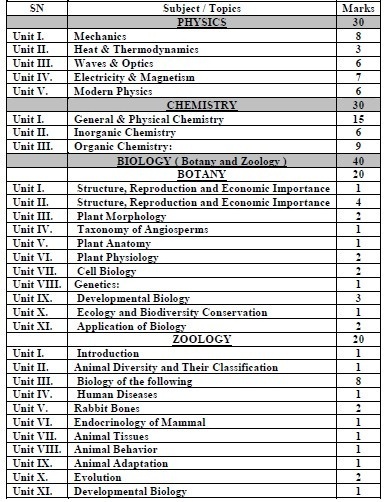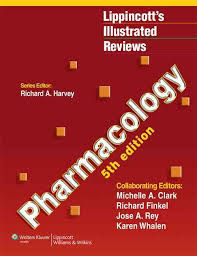The Rise and Slow Rise of Medical Textbooks!

Textbooks and review books or materials (lecture slides, apps, lecture videos, uptodate, etc.) are two sides of the same coin. The primary goal is to master the study material in any possible form in medical school.
Medical textbooks are one of the most important and probably the oldest resources for learning and they would remain so for a very long time, probably indefinitely. Traditionally they were the sole study material one had to go through cover to cover in order to excel as a medical student. Textbooks cover a lot of information and are typically bulky. The language is standard and the student has to labor really hard to master the material. Hence they are intimidating to many students. A standard textbook in medicine “Harrison’s Principles of Internal Medicine” has several thousand pages and those are real heavyweight ones.
Since the depth of content is so high, you are unlikely to miss much information that you need to know while studying textbooks. Again it depends significantly on the textbook you are studying but the downside to that advantage is that students have to seriously struggle between information that you must know, information that you should know, information that is nice to be know, information that you do not have to know and information that you absolutely do not need to know at all as per the scope of your curriculum. Among such increasingly complex scenario, students are expected to distinguish the important and unimportant stuffs. It’s real hard work which more often than not translates into stress, escapism, procrastination and mindless trivial activities that has nothing to do with your academics or success in life whatsoever.
Many teachers and professors simply are in love with these books. There could be many reasons for the fondness to a thick and vast book. Maybe they themselves studied these standard books and consider them to be the best among many newer alternatives. Maybe studying and referencing from standard books makes students look cooler, dedicated, hardworking and talented than their contemporaries who find little bit of comfort in thinner and student friendly books. I had heard about a medical professor saying “What kind of clinician would you expect to be if you had never studied Harrison’s?” In other words, he meant “How can a student who do not know the pain and hardship of going through the standard textbook know the pain and hardship of the medical field?”
Review books or materials in other forms (internet, lecture slides, lecture videos, slideshare, etc.) are the real saviors for students. There is a reason why review books and other alternatives like Dr. Najeeb videos, Pathoma by Husain A. Sattar or Slideshare are so popular. Instead of going through a 100 pages chapter of complex mixture, almost any medical student would love to go through a 6 pages of compact gems if it yields almost the same result. No matter what everybody thinks about review books, they would continue to be used as a primary source for many students particularly because the job of searching and separating important from unimportant stuffs are already being done by the content experts and students find no big reason not to trust them. The requirement of time and energy is less and the consolidation of memory would be outstanding, at least according to the popular opinion of many medical students. This is the prime reason why local publishers are giving so much importance to all sorts of review books. Although many of the local review books contain no original content and are just the summary version of the standard textbooks with paragraphs and pictures merely copy-pasted from the original ones, students still love to pay a huge amount of money to someone who has convinced them to make the task less daunting for exams. Exams! That’s the exact reason why many students in any field of study including medicine never bother to truly learn and are almost always focused on passing the upcoming exam. They never ask- “What do I need to know to be a better clinician?” Rather the common query is- “What are the high yield stuffs I must know in order to pass this particular exam?”
While condensing and reducing the information, many review books just contain the information that you must know at any cost. There is not a single line you can skip and be safe. Such assertion removes the ambiguity about the importance of the material students are studying. On the other hand it could also mean missing out many less certain pieces of information. Although that would make the book thinner, it would miss its wholeness. If you are absolutely sure that the topic is very important for exam you would certainly spend more time and energy into the stuff compared to when the important stuffs are diluted by a complex array of mixtures.
But there is the scary part when students rely almost completely on review books and materials. In any field of endeavor, you are unlikely to excel if all you know is few bullet points about the topic. Would you feel safe in a plane in which the pilot completely skipped the accepted standard textbook and learned everything about flying a plane through a simple 380 pages guide? The comprehensive approach has its own shortcomings but it would help students to learn the depth of any subject they dive in. If you only know what must be known and focus on only the most high yield points then you might miss the concept by a margin as it would be very difficult to connect the dots otherwise. The review approach is also very helpful. If you study a topic for 16 hours but are absolutely clueless about the important stuffs you could easily find on the first pages of any review books, then you are at a serious disadvantage.
The best option is obviously somewhere in between. Textbooks and review books or other materials must complement each other rather than being viewed as mutually exclusive scenarios. Any material available at present or invented in future should never be viewed as an absolute replacement to textbooks. Regardless of the pace of scientific advancement, textbooks are not going away anytime soon. Review books or materials are not going anywhere either and are constantly evolving. And rightfully so. The best combination of textbooks and review books at any point of time would vary depending on countless factors but one must not utterly discard any resource that has the potential to contribute to the combination of best material at any possible point of time.

Writer Information: Anish Dhakal (Aryan) is an MBBS Final Year student from reputed Patan Academy of Health science, Nepal. He is a regular blog writer for Medchrome magazine.
“Anish’s thoughts and opinions and way he puts it into blog is amazing .” – Medchrome




